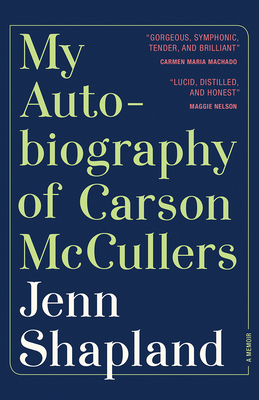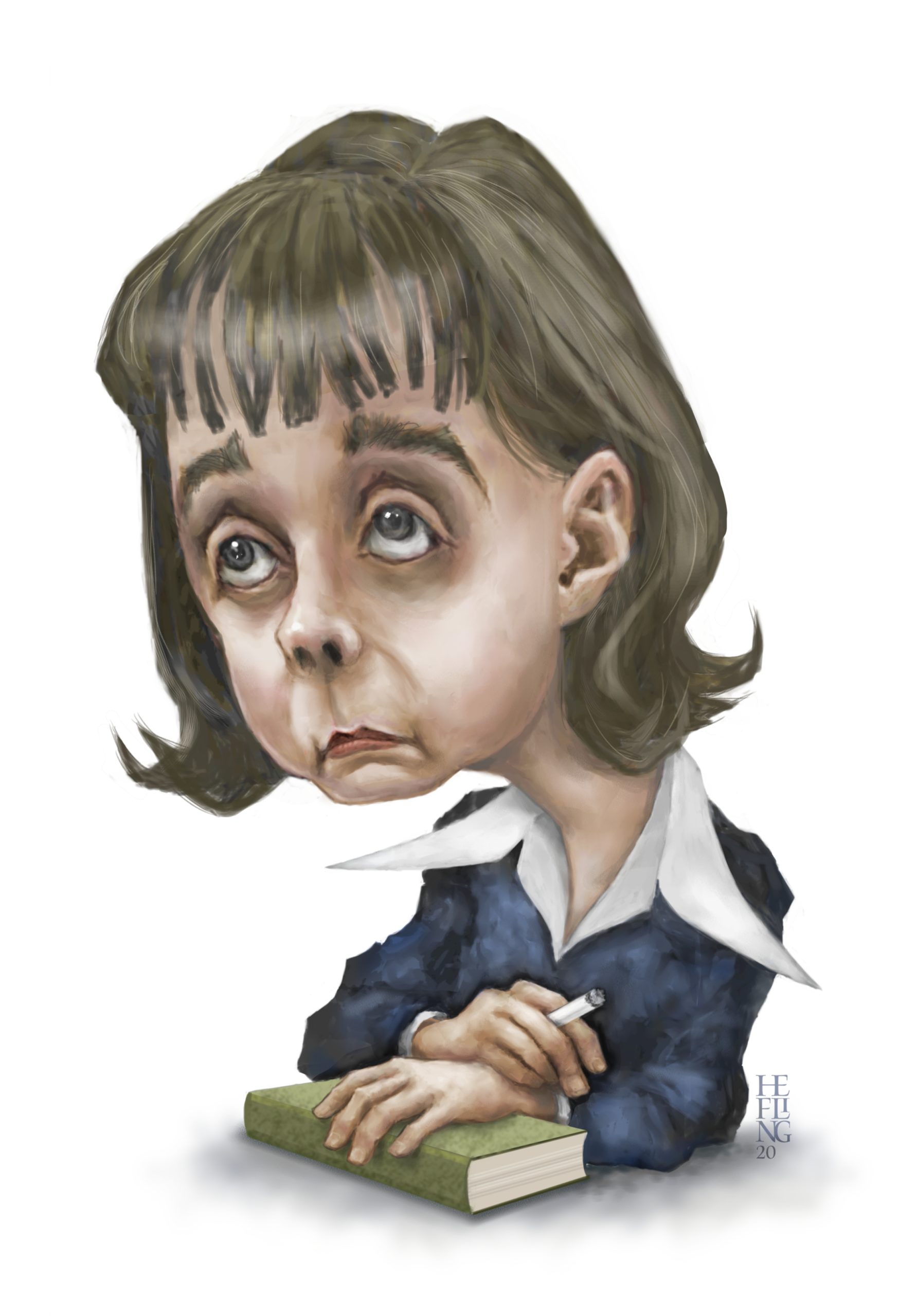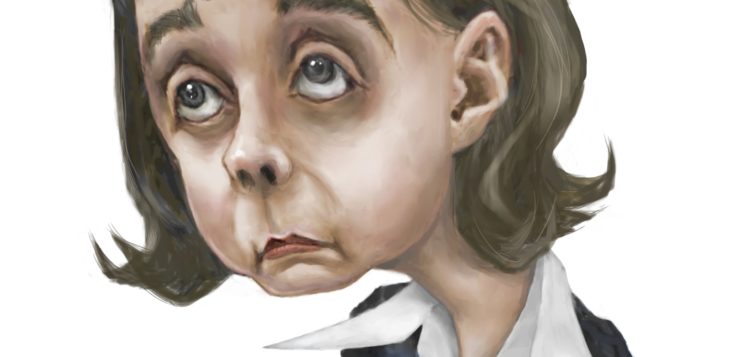 My Autobiography of Carson McCullers
My Autobiography of Carson McCullers
by Jenn Shapland
Tin House Books. 266 pages, $22.95
THE SLYLY TITLED My Autobiography of Carson McCullers is a joyful combination of biography and memoir, mixing author Jenn Shapland’s discovery of author Carson McCullers (1917–1967) with her own journey toward embracing her sexuality. While working at “a small university archive,” Shapland came across an exchange between McCullers and her future husband in which he asks her “if she was a lesbian.” Intrigued, she found what she describes as “love letters” from a woman named Annemarie [Schwarzenbach; see article in this issue, page 20] to McCullers, which remind her of her “own letters from my late teens and early twenties [when I was]attempting to articulate a self she had not yet fully become.” Doing more research, she found that the earlier exchange is part of transcripts from McCullers’ sessions with a therapist late in the author’s life, when she was attempting to write her memoir and to overcome writer’s block.
These discoveries awakened a kindred spirit in Shapland, who writes of “never quite breaking up” with her first girlfriend, with whom she spent “six closeted years together,” and of growing “bored sick of academia” in her doctoral program. The research feels personally significant for her, inspiring her to stay in McCullers’ house in Columbus, Georgia, and learn about the writer’s friendships with other famous lesbians and bisexuals, including Janet Flanner, Gypsy Rose Lee, and Jane Bowles, some of whom lived with McCullers for a time in New York.

Shapland learned that the Annemarie of the love letters was a beautiful, European, morphine-addicted lesbian. McCullers “fell hard,” although “everyone told her she [Annemarie] wasn’t worth her time.” McCullers recounts in the therapy sessions the night of “her first sexual encounter with a woman,” when Annemarie, delirious and demanding morphine, ordered her to strip, only to humiliate her. McCullers later finds out that Annemarie, deported to Europe, died in a bicycle accident.
Shapland also learned about the remarkable history of the therapy sessions. McCullers went to Dr. Mary Mercer after her mother’s death, finding herself unable to write. The two women agreed to use the transcripts “as an attempt at writing biography.” Although “the transcripts are maddeningly incomplete,” Shapland found passages in them in which McCullers talks about the women she has loved. After their first session, McCullers invited Dr. Mercer to lunch, and they remained close after Dr. Mercer ended their professional relationship, traveling together and writing intimate letters to one another.
To her surprise, Shapland found in all other biographies of McCullers “that her relationship with Annemarie,” and indeed “all of her profound emotional relationships with women,” are “either dismissed or ridiculed.” They instead focus on her relationship with Reeves McCullers, whom she married twice and who was a tumultuous, even a dangerous, presence in her life. Shapland takes this “retroactive closeting” personally, asking: “If Carson was not a lesbian, if none of these women were lesbians, according to history, if indeed there hardly is a lesbian history, do I exist?” She explains: “A woman does not know she is a lesbian … because she is not aware that the relationships she engages in could be called lesbian,” for “I didn’t call myself one for several years.”
While McCullers may not have recognized her own lesbianism, that topic found its way, in some form, into her fiction. Shapland sees that “her characters are mute or too tall or black and queer and almost always lonely and out of place.” Growing up in a small Southern town, McCullers, like Truman Capote, with whom she feuded, seems to have drawn heavily on her own experiences. With short chapters and a passionate style, this book is a deeply personal account of the way writers can, sometimes unexpectedly, inspire their readers.
Charles Green is a writer based in Annapolis, Maryland.






